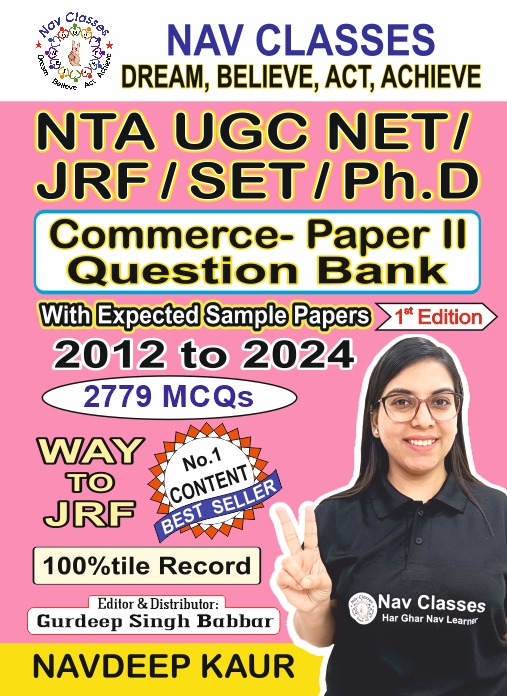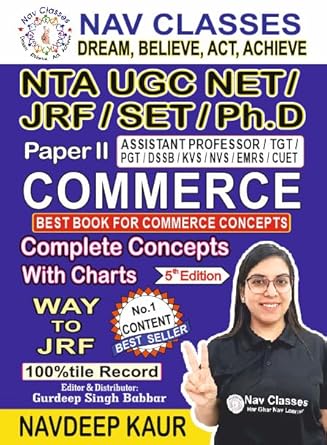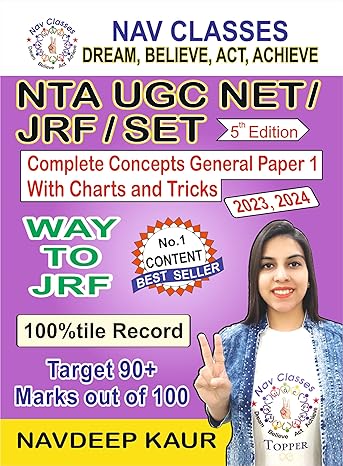1.Which among the following is the constitutional body appointed by the president, every five years to review centre state financial relationships?
[A] Finance Commission
[B] Inter State Commission
[C] Inter State Council
[D] Zonal Council
SHOW ANSWER
Explanation: Finance Commission of India is established by President of India as per Article 280 of the constitution. Article 280 reads: President should, within two years of commencement of the Constitution and thereafter on expiry of every 5th year, or at such intervals as he/ she thinks necessary, would constitute a Finance Commission. ©navclasses
2.Which among the following articles speaks about impeachment of the President of India?
[A] Article 60
[B] Article 61
[C] Article 62
[D] Article 63
SHOW ANSWER
Explanation: As per Article 61, President of India can be impeached on ground of violation of the Constitution. However what amounts to violation of the Constitution has not been defined. The process of impeachment can begin in any of Lok Sabha or Rajya Sabha. The charges for impeachment should be signed by 1/4 members of the house in which the process begins and a notice of 14 days should be given to the President. The impeachment bill has to be passed by majority of not less than two-thirds of the total membership of the House {special majority}. One passed in that house, the bill reaches to another house, which shall investigate the charges. President has right to appear and be represented in case of such investigations. If other house also sustains those charges, then it would again need to pass the bill by special majority and thus president stands removed from the office on which the bill is passed in other house. Since it is a bill for removal of president himself, no presidential assent is needed here. ©navclasses
3.Which among the following has the power to legislate on the matters which are neither in the Union List, nor in the State list nor in the Concurrent list of the Constitution of India?
[A] Parliament
[B] State Legislatures
[C] Both State legislatures and Parliament
[D] Neither Parliament nor State legislature
SHOW ANSWER
Explanation: The subjects which are not enlisted in Union/ State/ Concurrent List are called Residuary subjects. The power to legislate on residuary subjects lies with the parliament. ©navclasses
4.For how many times, a person can become President of India?
[A] Once
[B] Twice
[C] Thrice
[D] No limit
SHOW ANSWER
Explanation: Article 57: Eligibility for re election – A person who holds, or who has held, office as President shall, subject to the other provisions of this Constitution, be eligible for reelection to that office. ©navclasses
5.The chairman of the Committee on Public Accounts is nominated by which among the following?
[A] President
[B] Lok Sabha Speaker
[C] Lok Sabha Secretary
[D] Cabinet Committee on Parliamentary Affairs
SHOW ANSWER
Explanation: Public Accounts Committee (PAC) is one of the standing parliamentary committees, which was first established in 1921 under the Government of India Act 1919 provisions. This committee examines the manners and results of spending the public funds. Public Accounts Committee has 22 members of which 15 are from Lok Sabha while 7 from Rajya Sabha. The members are “elected” by members of Parliament amongst themselves via a system of proportional representation by means of single transferable vote; so that all parties get due representation in it. Members are elected for a period of one year. A minister cannot be a member of PAC. Chairman of PAC is appointed by Speaker from its members. The chairman used to be of ruling party till mid 1960s, however, now the chairman of PAC is from opposition by convention. ©navclasses
6.Sindhi Language was included in the list of official languages in the 8th schedule of our constitution in which year?
[A] 1957
[B] 1967
[C] 1969
[D] 1968
SHOW ANSWER
Explanation: In the Constitution of India, there is a provision made for each of the Indian states to choose their own official language for communicating at the state level. The selected languages, which can be used for official purpose, have been listed in the Eighth Schedule to the Constitution. Originally, there were 14 languages in the 8th schedule. The further languages were added as follows: Sindhi by 21st amendment, 1967 Konkani, Manipuri and Nepali languages by 71st amendment, 1992 Bodo, Dogri, Santhali and Maithali by 92nd Amendment, 2004. ©navclasses
7.The Amindivi islands consist of five islands of which of the Union Territory ?
[A] Andaman & Nicobar
[B] Lakshadweep
[C] Pondicherry
[D] Daman & Diu
SHOW ANSWER
Explanation: The Aminidivi subgroup of islands consists of Amini, Keltan, Chetlat, Kadamat, Bitra, and Perumal Par islands. It is one of the three island subgroups in Lakshadweep and is separated by Laccadive Islands subgroup roughly by the 11th parallel north. ©navclasses
8.Which among the following state does not have a bicameral legislature?
[A] Maharastra
[B] Bihar
[C] West Bengal
[D] Andhra Pradesh
SHOW ANSWER
Explanation: The 6 states with bicameral legislature are Bihar, Maharashtra, Uttar Pradesh, Karnataka, Andhra Pradesh and Telangana. ©navclasses
9.Who among the following coined the term zero hour?
[A] Constitution assembly
[B] Dr. B R Ambedkar
[C] Indira Gandhi
[D] Press
SHOW ANSWER
Explanation: Please note that this term was coined by the press in 1960s and there is no mention in parliamentary procedure rules. ©navclasses
10.By which amendment of the Constitution, Article 323A (Administrative tribunals) & Article 323B (Tribunals for other matters) in a new part XIV A was inserted in the Indian Constitution?
[A] Constitution 40th Amendment Act
[B] Constitution 41st Amendment Act
[C] Constitution 42nd Amendment Act
[D] Constitution 43rd Amendment Act
SHOW ANSWER
Explanation: Constitution (42nd) Amendment added a new part XIVA to the Constitution for Tribunals: Administrative Tribunals (Art 323A) and Tribunals for other purpose (Art 323B). ©navclasses







One Response
5/10